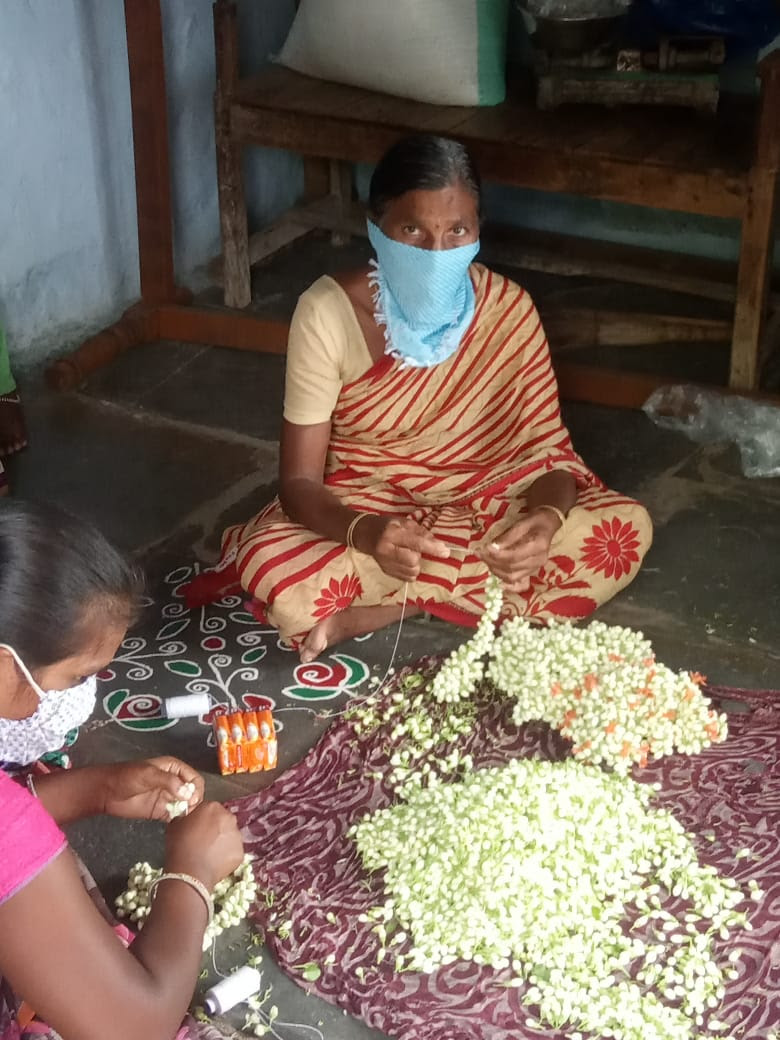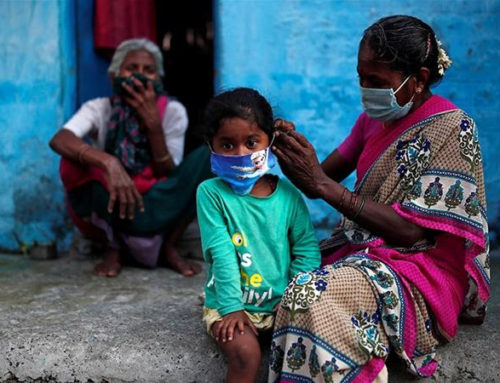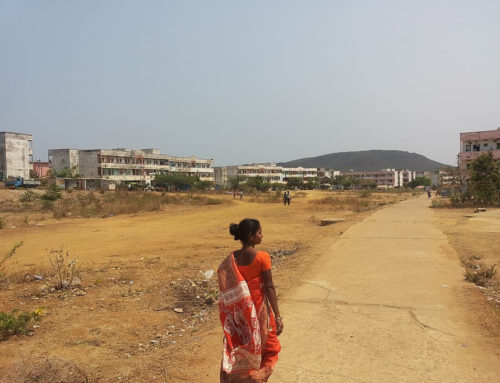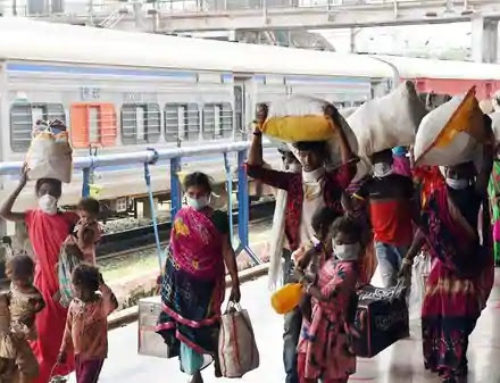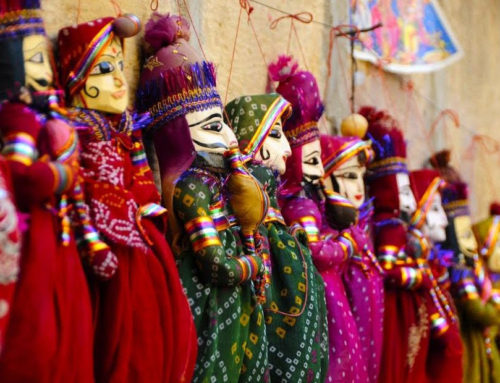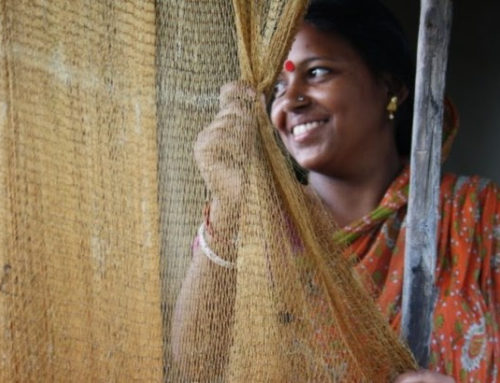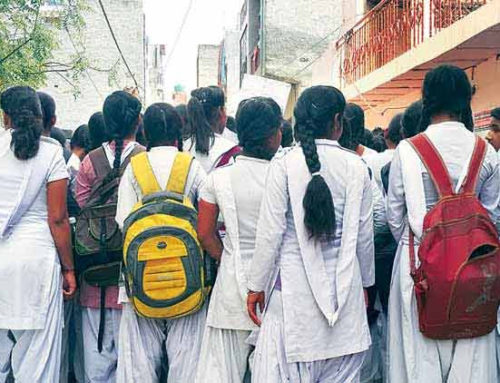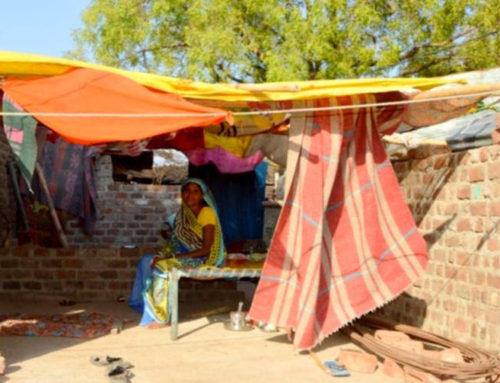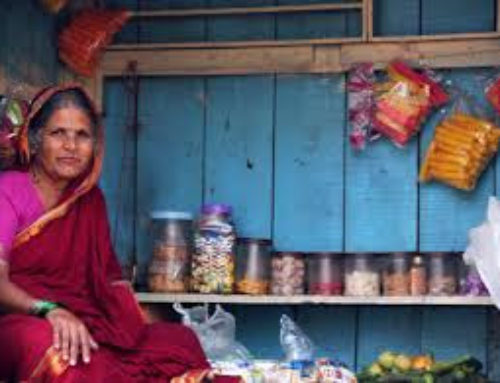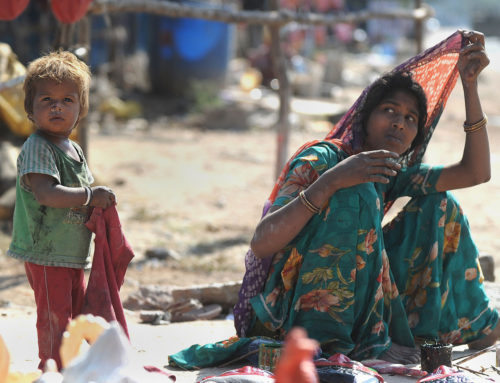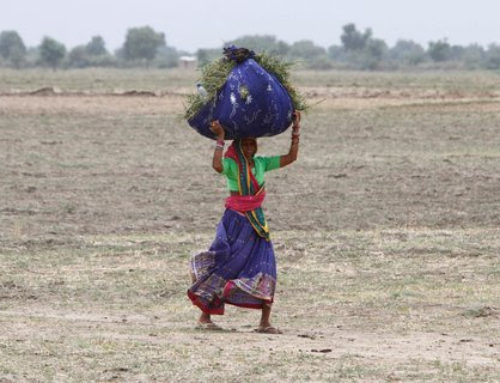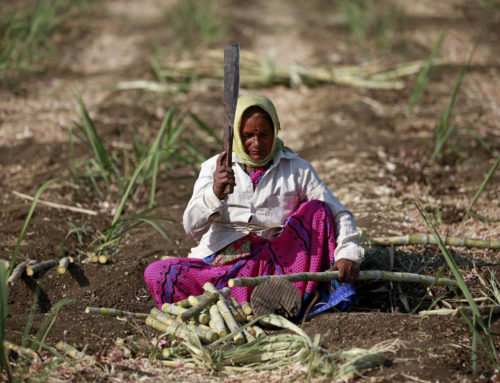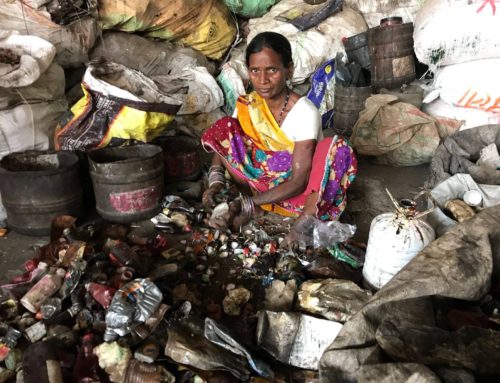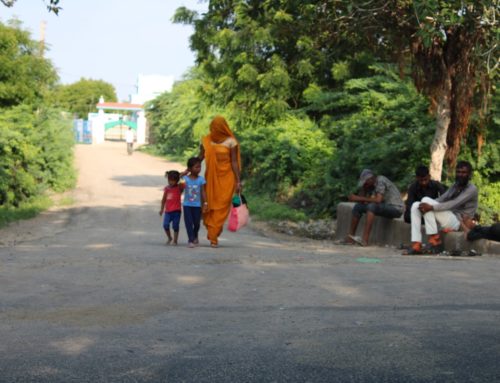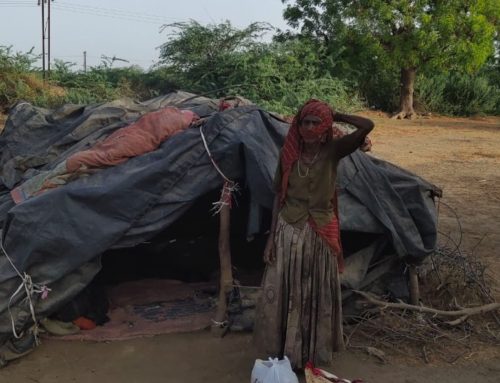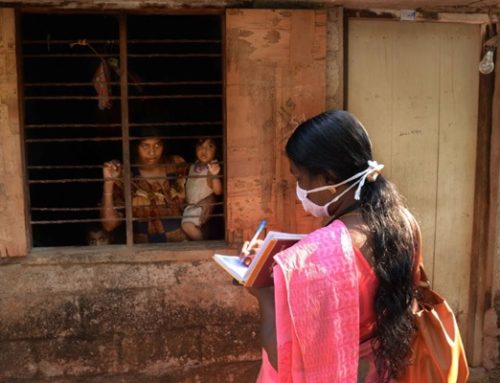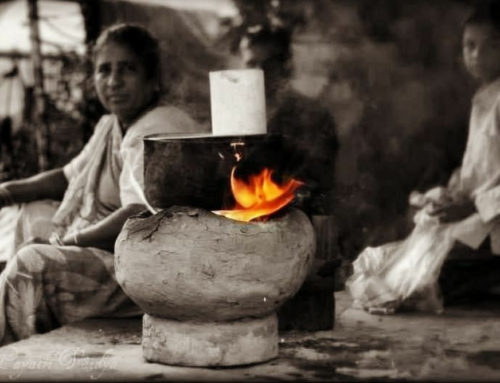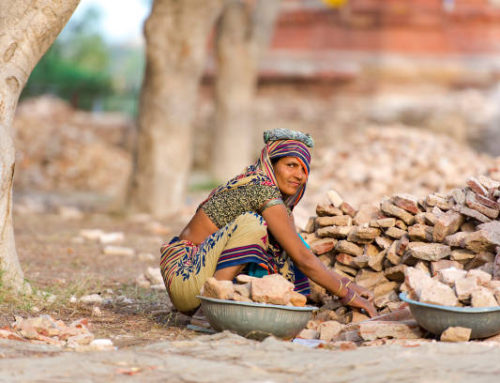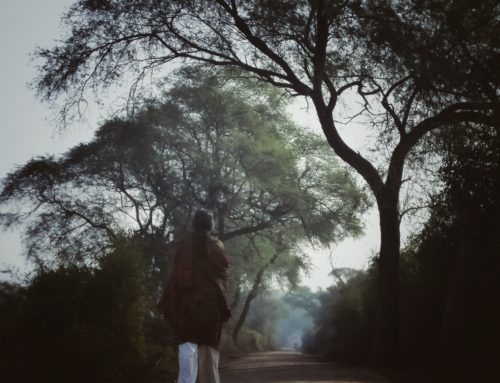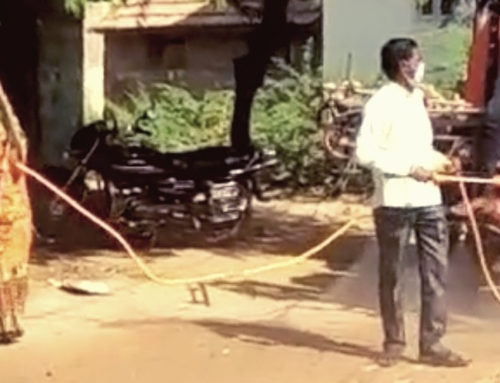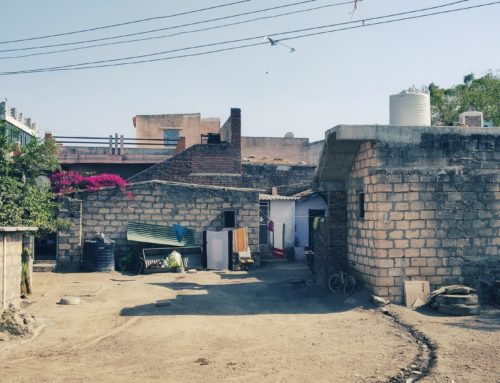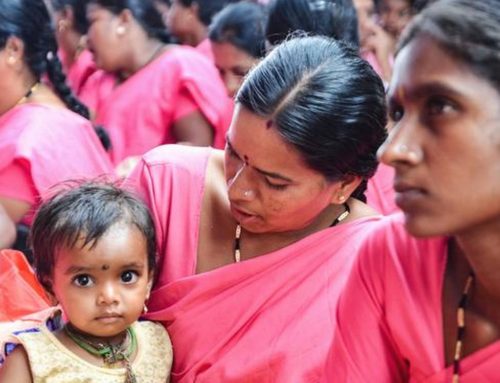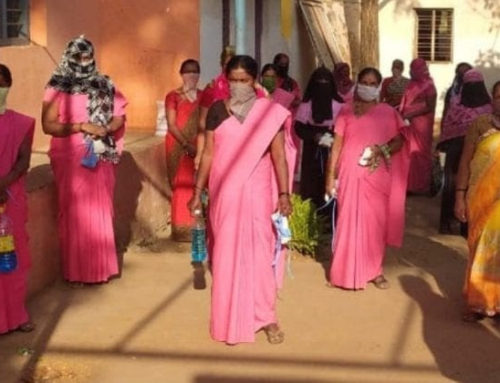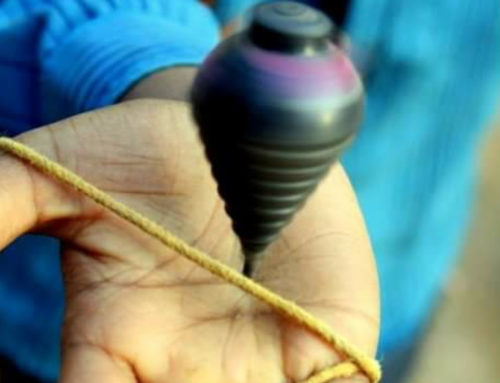Konda Mallepally is a prosperous village in Nalgonda District of Telangana State, India. It is located 100 KM towards the southeast of Hyderabad. Being at a junction it has a thriving cattle market. Several temples are also built on the highway passing through the village. Alcohol consumption is high in the village, resulting in high mortality among men. The youngest widow in the village is 19 years old.
Laxmamma, a 50-year-old has experienced it all. She knows what it means to be poor, has known the satisfaction and comfort that comes from coming out of it and now she is learning what it feels like to be back to square one. She worked as a daily wage laborer in the village and earned enough to survive. Her husband was an alcoholic too who died due to a heart attack five years ago. She has five grown-up children (3 daughters and 2 sons); all are married. She lives alone as her two sons have migrated to Hyderabad and do not support her financially.
With age, Laxamma was finding it difficult to work in the fields and was looking for an alternate means of livelihood. She occasionally worked, stringing flowers into garlands in the local shops. In December 2018, Laxmamma joined the local single women group formed by Gramya, a women’s rights organization working in the region. After consultation and discussion in the group in March 2019, Laxmamma received a loan of six thousand rupees from the group. With this money, Laxmamma started a flower business to supplement her income. She was very good at her work and business soon picked up. Earlier she bought flowers for making garlands from Mallepally itself. As her business was growing, she spoke with three bus drivers who travelled to Hyderabad city and requested them to bring loose flowers from Hyderabad as the flowers there were cheaper. The drivers agreed to this and brought her the flowers on alternate days. This truly helped Laxmamma to expand her business. When she was buying and selling locally she was earning between rupees 200-300 per day. With lower cost being incurred on buying flowers her profits increased as did the demand. Due to many temples and women wearing flowers in their hair she started doing a brisk business. And she offered competitive rates to local traders. Soon Laxmamma was able to employ three other women, one of them a single woman to support her in the flower business. She paid them anywhere between rupees 250-300 per day. After all the payoffs etc. Laxmamma’s own profit was about rupees 700 per day. She was proud of her own success and had also started to return the group loan.
Post the lockdown Laxmamma has not been able to continue her business. Her supply of flowers from Hyderabad was cut off due to transport shut down and her livelihood along with three other women’s who worked with her collapsed. Laxmamma survived on her saving for a few weeks after the lockdown but she soon ran out of money to buy food. Gramya provided a food ration kit which lasted for a month. After that she survived on rice and other staples received through the PDS system. The state government announced a onetime cash dole of rupees 1500 to families living below the poverty line.Laxmamma was eligible but could not get this money into her Jandhan account due to some glitch in the banking system, Since many others faced similar issues, after much hue and cry, the government announced that cash would be paid out at the local post office Laxmamma managed to get this amount.
On 1st June 2020, almost after 11 weeks, the lockdown was lifted. However, for Laxamma it might as well have not, as her life is once again embroiled in the spiral of poverty. She has used up all her savings to survive through the period of no income. She still owes money to the group and because of overall economic stress, continued restrictions on mobility and assembly of people there are few takers for flowers, even for the Lord. Laxmamma wants to restart her business but does not have the money. She finally did take another loan of rupees 2000. But is struggling to repay it as sale of flowers has dropped. She has gone back to working as an agricultural laborer. Her three friends are out of work too.

